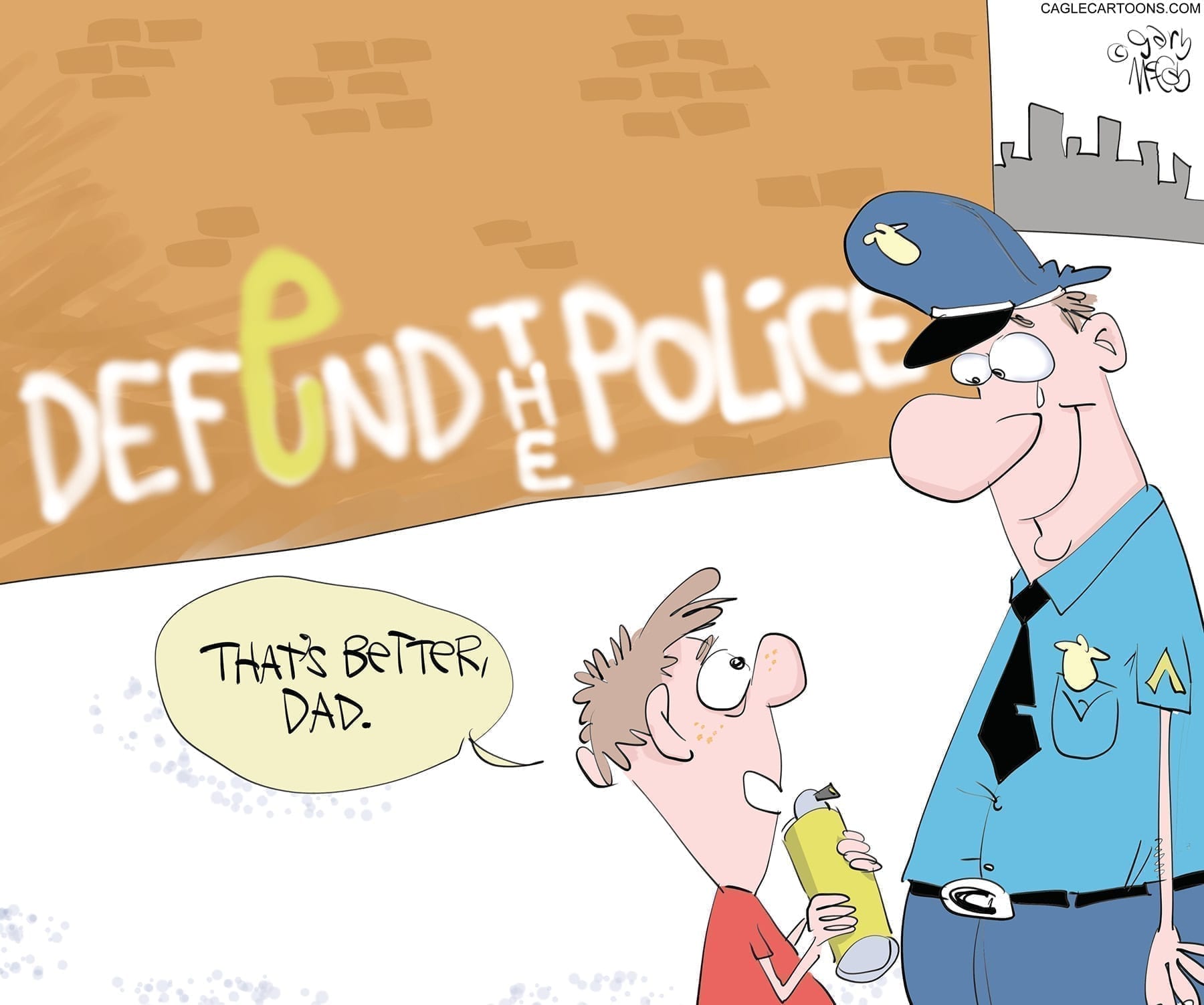
Without Empathy
Without Empathy, Discussions About Racism And Policing Will Lead Nowhere. We’ve all seen the video. There’s simply no justification for Minneapolis police officer Derek Chauvin doing what he did to George Floyd.
I’ve worked with law enforcement officers – federal, state, and local – throughout my career. The overwhelming majority are simply trying to do their duty under difficult circumstances. It’s a dangerous job. So far this year, 22 law enforcement officers in the U.S. have been killed “feloniously,” according to FBI crime statistics. Last year, 48 were killed. Most of the officers killed were shot by gun-wielding suspects. In 2018, according to the FBI, there were 58,866 assaults against law enforcement officers.
It’s a tough job where you have to make life-and-death decisions in fractions of seconds, only to be second-guessed by armchair analysts. There are some 800,000 sworn law enforcement officers in this country. There are bound to be a handful of bad actors among them.
In no way does this excuse what happened to Floyd. Why did Chauvin do it? We don’t know. Was he motivated by racism? We don’t know that, either. All we really know is that Chauvin is white and Floyd was black. Chauvin will have his day in court.
Chauvin’s actions are an affront to all honest, hard-working cops. He and other officers who use unnecessary force are catalysts of suspicion and mistrust. They divide rather than unify.
In the same way, those who sowed mayhem and chaos in cities across America only diverted attention away from legitimate protests, not to mention from Floyd himself, and have made it just about impossible to engage in productive discussions to ensure that what happened to Floyd never happens again.
And now, for an encore, progressives are pushing to defund (“dismantle” in the case of Minneapolis) local police departments.
This is what happens in a world of extremes. The advancing of agendas always supersedes the desire for reconciliation.
Let me just pause here to ask an obvious question. How does fewer cops on the streets or redistributing law enforcement funding help anyone, including people of color?
CNN’s Alisyn Camerota asked Minneapolis City Council President Lisa Bender, who wants to “dismantle” the city’s police department, what a citizen is supposed to do if someone is breaking into her house and there’s no police force.
“For those of us for whom the system is working, I think we need to step back and imagine what it would feel like to already live in that reality where calling the police may mean more harm is done.”
The worst thing about this sort of nonsense is it distracts all of us and diverts our attention from legitimate issues and productive discourse.
In January, on Martin Luther King Day, Archbishop Jose Gomez of Los Angeles called racism “a sin that denies the truth about God and his creation.” King himself called racism “a cancerous disease that prevents us from realizing the sublime principles of our Judeo-Christian tradition.” William Wilberforce, who led the movement to abolish slavery in Europe in the 18th century, viewed his work as his Christian duty.
“God Almighty has set before me two Great Objects,” Wilberforce said, “the suppression of the slave trade and the reformation of manners.”
Discrimination, racism, and oppression deny an individual his personhood as created by God. Thus, people like Wilberforce believed slavery was a crime not only against man but against God Himself.
A serious pursuit of justice requires calling out evil. It does not require extremist rhetoric and behavior.
Those engaged in peaceful protests over Floyd’s death don’t want to be seen as rioters and looters, setting fires and stealing TVs. That would be unfair. It’s equally unfair to suggest that Derek Chauvin is representative of all police officers. Unfair and untrue.
I’m a white male of European descent and therefore don’t feel qualified to lecture anyone on the struggles of African Americans in the U.S. I do think of my students of color, some of whom have shared with me what it’s like to be the “only” in so many situations. I can listen, but I simply can’t relate. Nor should I pretend that I can.
What all of us can do is seek empathy, for people of color, for their struggle and yes, for dedicated law enforcement officers, whose main goal every night is to live through their shift. The “us” versus “them” approach in the name of justice, advanced by the Al Sharptons of the world, will get us nowhere.
Unless empathy and reason prevail, the middle ground of compromise and understanding we seek – assuming we’re really interested in finding it – will remain unreachable. That would be the greatest injustice of all.
–
Copyright 2020 Rich Manieri, distributed by Cagle Cartoons newspaper syndicate.
Rich Manieri is a Philadelphia-born journalist and author. He is currently a professor of journalism at Asbury University in Kentucky. You can reach him at manieri2@gmail.com.
Viewpoints and perspectives expressed throughout The Independent are those of the individual contributors. They do not necessarily reflect those held by the staff of The Independent or our advertising sponsors. Your comments, rebuttals, and contributions are welcome in accordance with our Terms of Service. Please be respectful and abide by our Community Rules. If you have privacy concerns you can view our Privacy Policy here. Thank you!
Click here to submit an article, guest opinion piece, or a Letter to the Editor




